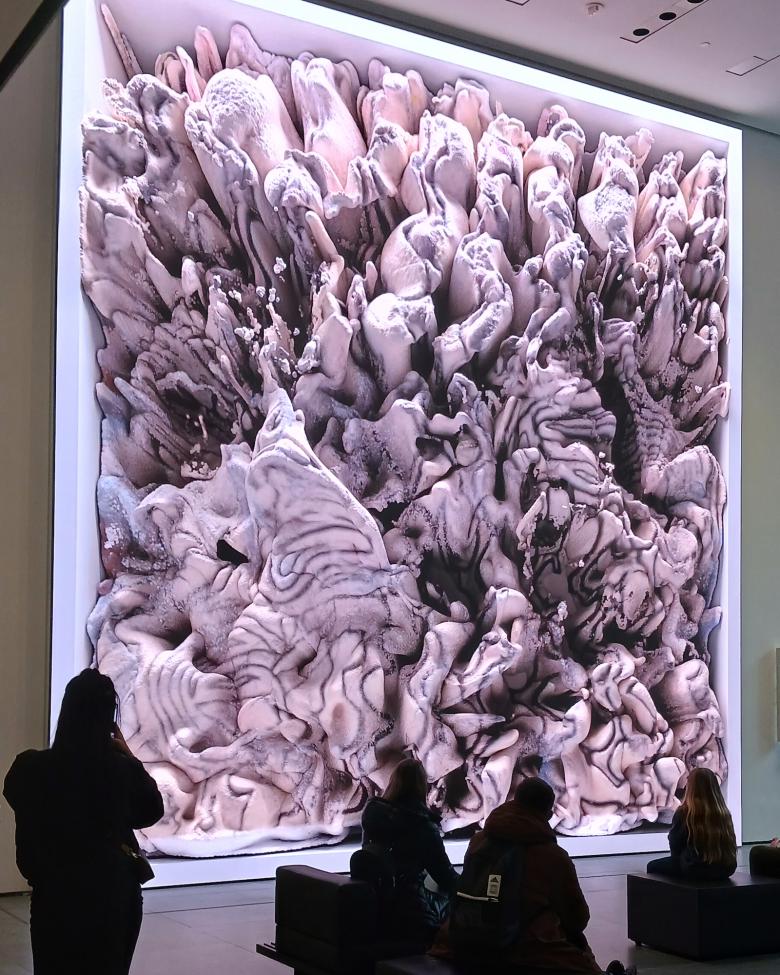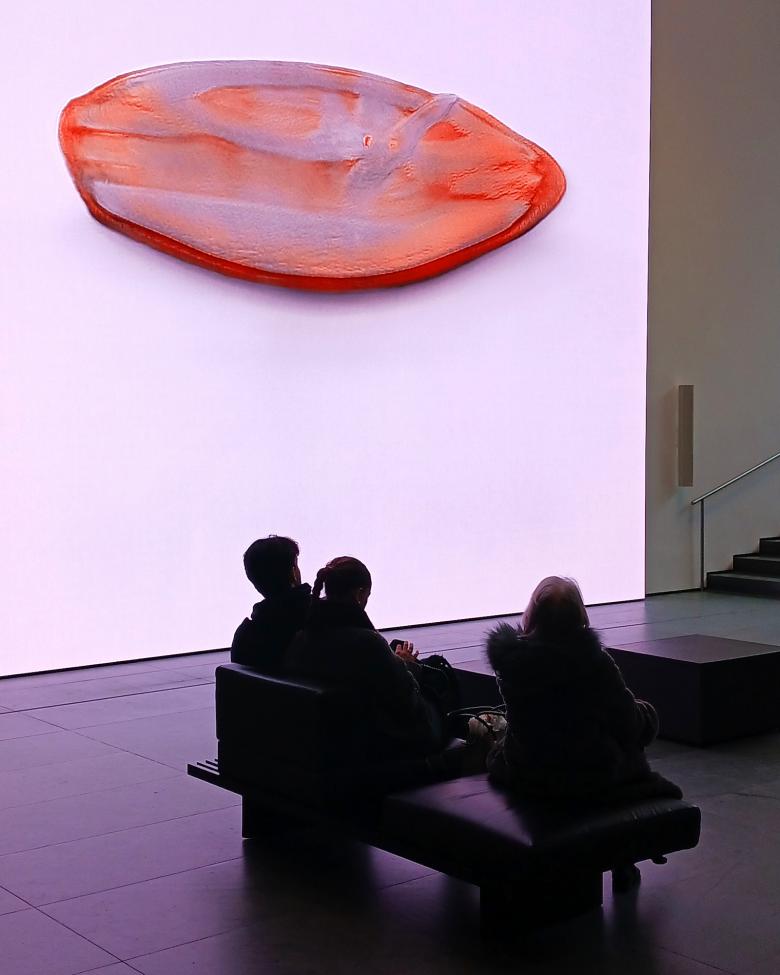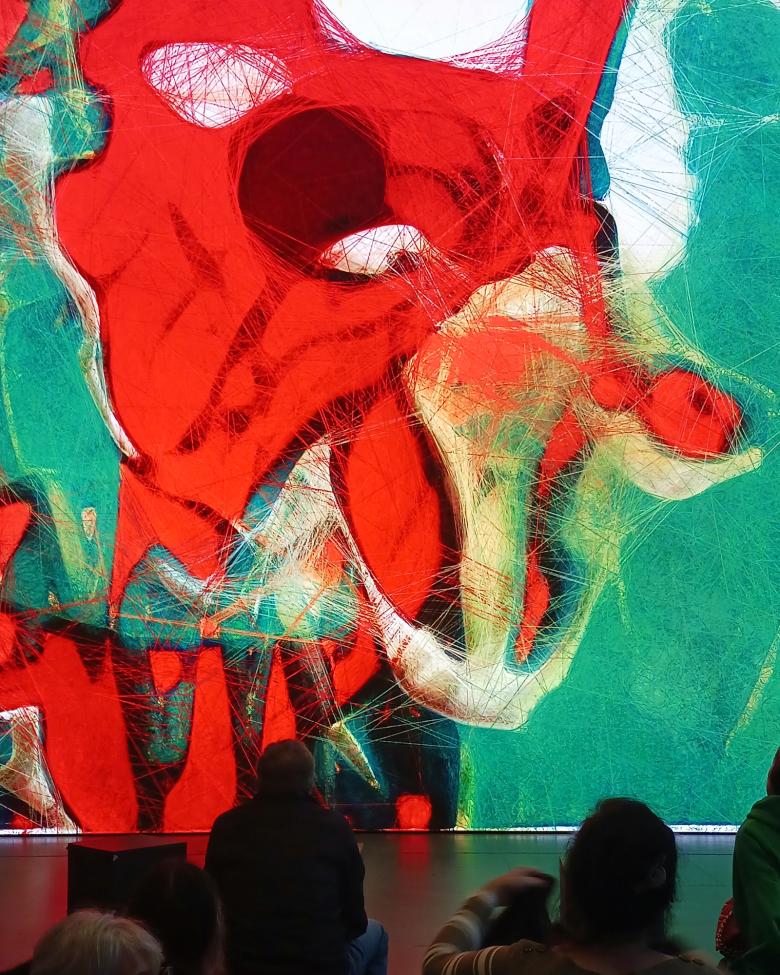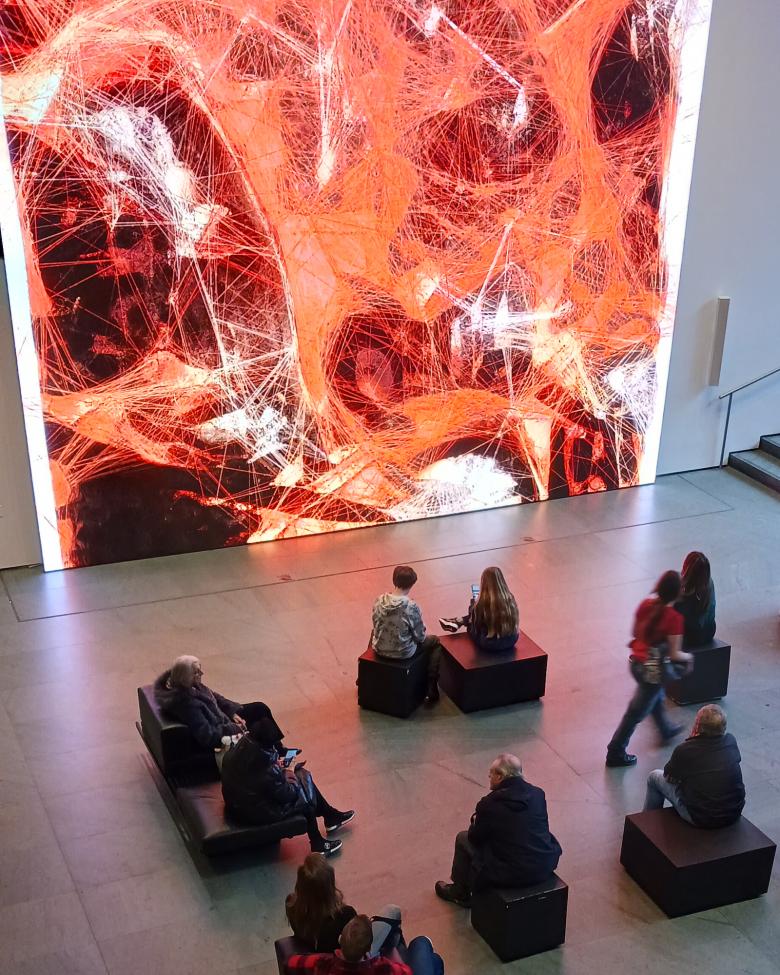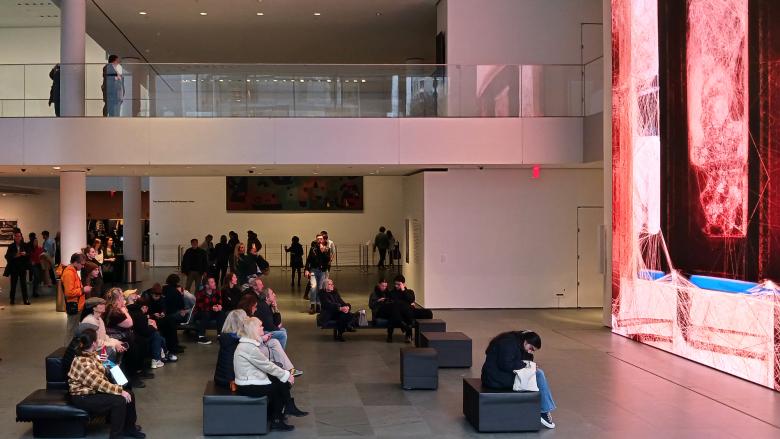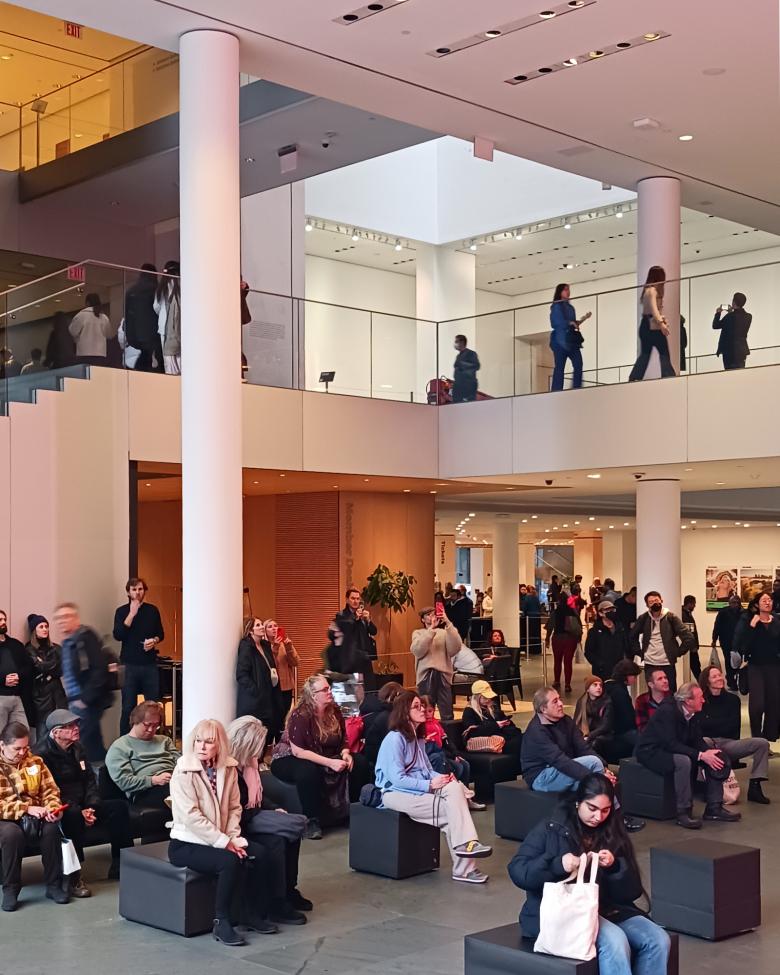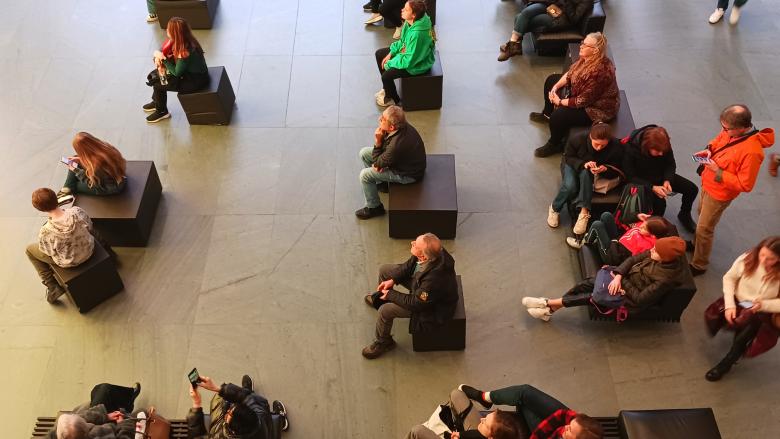Scenes From a Lobby
John Hill
6. enero 2023
All photographs by John Hill/World-Architects
Artist Refik Anadol has filled the lobby of the Museum of Modern Art in New York with a large video wall displaying images of artworks from the MoMA collection mutated by artificial intelligence software. Obviously timely, the installation is also beautiful to behold.
Unsupervised opened in MoMA's lobby on November 19, 2022, about two weeks before OpenAI's chatbot, ChatGPT, was released and made headlines for the way it could disrupt everything from high school essays to Google Search. ChatGPT came at the end of a bumpy year that saw architects dabbling more and more with AI, people flooding Twitter with images of AI-generated mashups ("gas station designed by antoni gaudi"), and the bursting of the NFT bubble, among other headlines in the overlapping realms of AI, art, and tech. By comparison, Unsupervised is promising, revealing the potential for AI technology to mine data — in this case hundreds of publicly accessible images from MoMA's collection — and create unexpected yet captivating results.
It's not always clear what artworks are being manipulated, but the images are constantly changing so it's hard to resist sitting and watching.
The most impressive stages happen when the whole video screen is bathed in colorful shapes and lines.
Accompanied by an ambient soundtrack and comfortable seating, the video wall invites museum-goers to stop and watch before heading to the galleries upstairs — or to decompress after taking in the latter. Numerous galleries in the museum could have hosted the 24-foot square display, but placing it directly between the wide passage from 53rd Street to 54th Street and the museum's iconic courtyard brings the AI-generated art into the public realm. Well, nearly: MoMA's usual free and freely accessible ground floor space requires a ticket for the duration of Unsupervised, which runs until March 5.
The installation can be looked at from the lobby level as well as the adjacent stairs and walkways.
The screen and the audience seen from the direction of the courtyard.
The MoMA website states that "Anadol incorporates site-specific input from the environment of the Museum’s Gund Lobby — changes in light, movement, acoustics, and the weather outside — to affect the continuously shifting imagery and sound." The large glass wall facing the courtyard is the most dramatic contributor in effecting these changes, though the people moving back and forth between the lobby/ticketing and the stairs make Unsupervised as much a background element seen in passing as an artwork that grabs and holds one's attention. In this sense, the duplicitous nature of the installation can be attributed to the ever-changing flow of images as well as to the flow of bodies in this semi-public space. Such an artwork could easily exist online, but seeing it in person, with other people, is recommended.
The artwork holds interest, for sure, but it's also interesting to watch people watch it...
...some intently and many others distractedly.
Finally, here is a short 90-second video I shot and edited with my phone, showing the mutating images and the interstitial moments that apparently reveal the AI algorithms at work (turn on sound to hear the ambient soundtrack):
